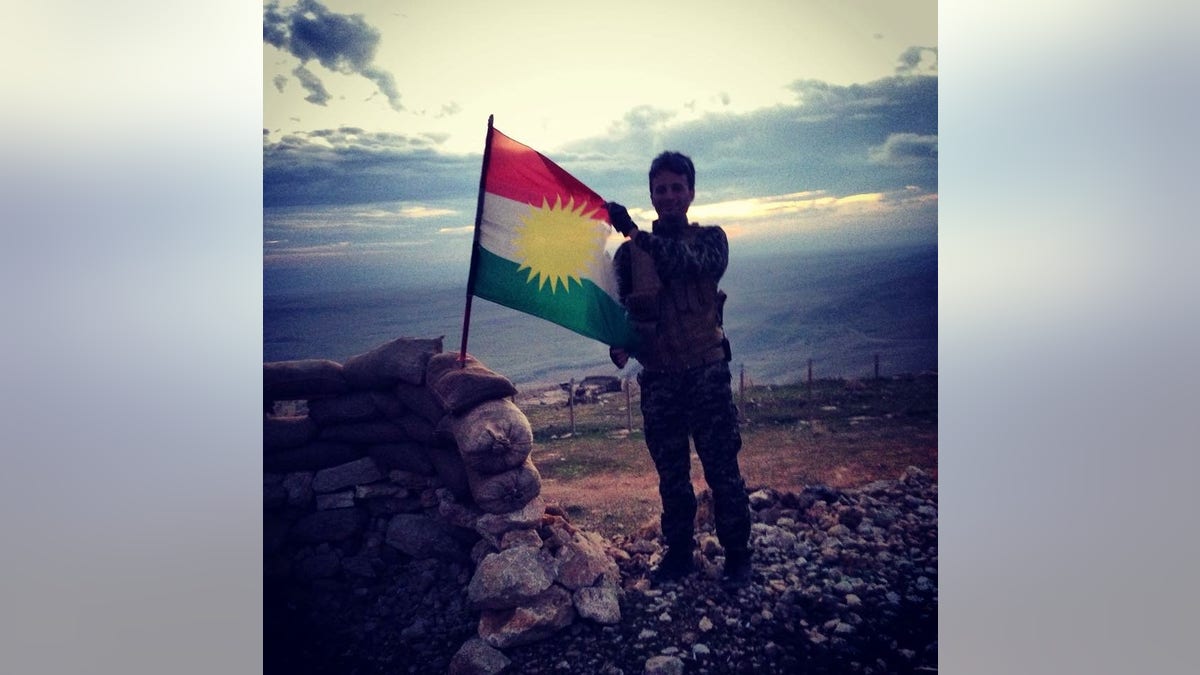
A Kurdish Peshmerga soldier holds the KRG flag on the frontlines of Mosul Dam. (Fox News/Hollie McKay)
As Iraqi Kurds count down the weeks until their landmark independence referendum, U.S. and Baghdad officials are warning the non-binding vote could be undermine the fight against ISIS.
Kurds, concentrated in the northern part of the war torn nation, maintain a semi-autonomous region that relies on funding from Baghdad. The Kurds, who number nearly 6 million in Iraq, have been instrumental in the battle to expel ISIS from its stronghold of Mosul and surrounding cities and villages, working with both Baghdad and the U.S. The vote for independence is set for Sept. 25.
“The referendum is going to be held because of Kurdish people’s intense heartiness for being independent."
“The Iraqi Kurdistan Government is a strategic partner in our common fight against ISIS in Iraq. That being said, the U.S. continues to support a federal, prosperous, unified and democratic Iraq. We do not support a referendum at this time,” a State Department official told Fox News this week. “A referendum now, even this non-binding one, could have catastrophic consequences for Baghdad-Erbil cooperation that is essential to defeat ISIS.”
Communication between Baghdad’s Iraqi Forces and the Kurdish capital Erbil’s Peshmerga to defeat ISIS – which still holds some 30 percent of the total territory it once controlled inside Iraq – is crucial. Yet, the Baghdad and Kurdish governments are still themselves at odds over vast swaths of disputed land.
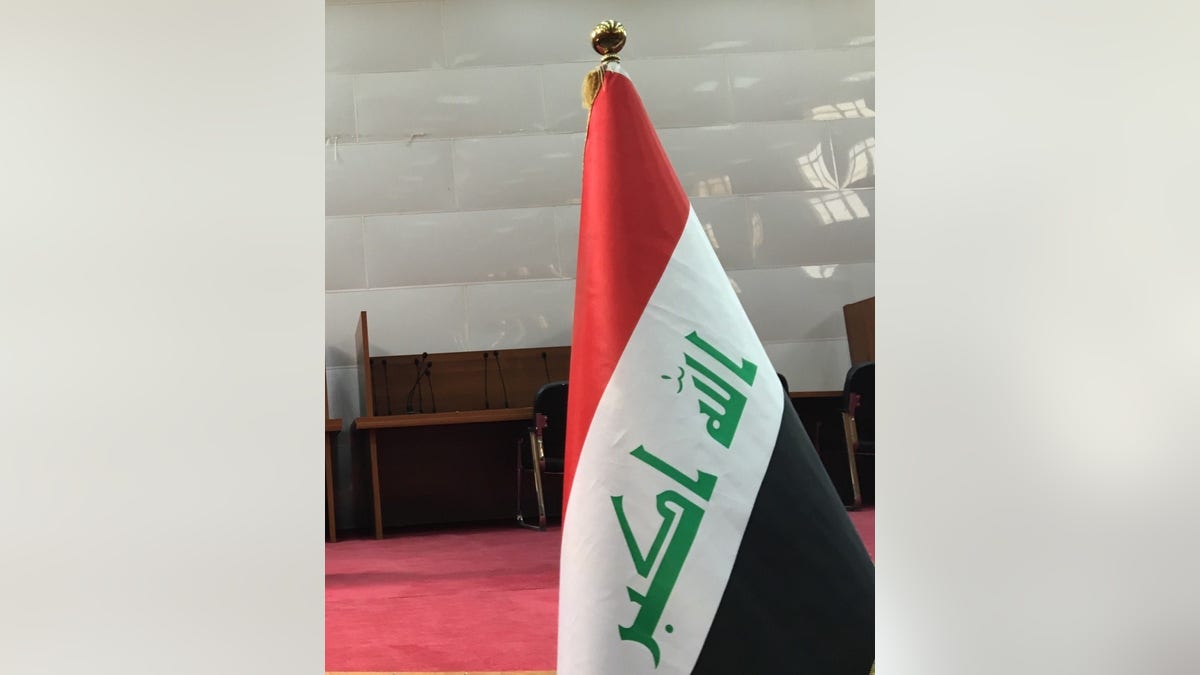
U.S. continues to support a "unified" Iraq ahead of the looming Kurdish referendum (Fox News/Hollie McKay)
“Finally, things appear to be going right between the two – fighting a common enemy, and doing it well. So why destroy relations now? There is a real concern this referendum will be disruptive, raise the temperature in the whole region and lead to a land grab,” one high-ranking Iraqi official, who requested not to be named as he was not authorized to speak to the media, told Fox News. “The disputed territories must be handled first.”
Key areas in the country, including parts of Kirkuk and Nineveh Governorates, are among these contested areas. Furthermore, critics say, the Kurdish government does not currently have a functioning parliament – given it was suspended almost two years ago after President Masoud Barzani’s term ended – but he declined to step down given the crisis of the then-burgeoning ISIS.
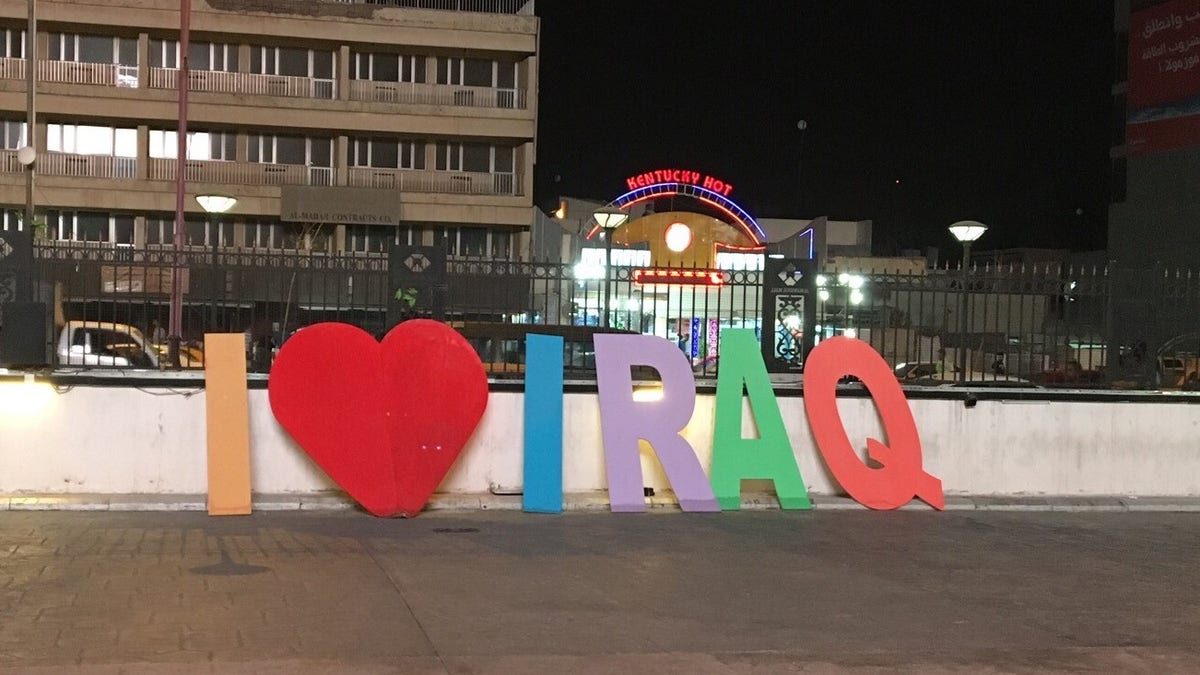
Baghdad, Iraq (Fox News/Hollie McKay)
The referendum also poses regional and international concerns. Turkey has already warned that holding the referendum will be a “grave mistake,” and Iran has been very vocal in its position that the disintegration of its neighbor will spell “danger” for the region as a whole.
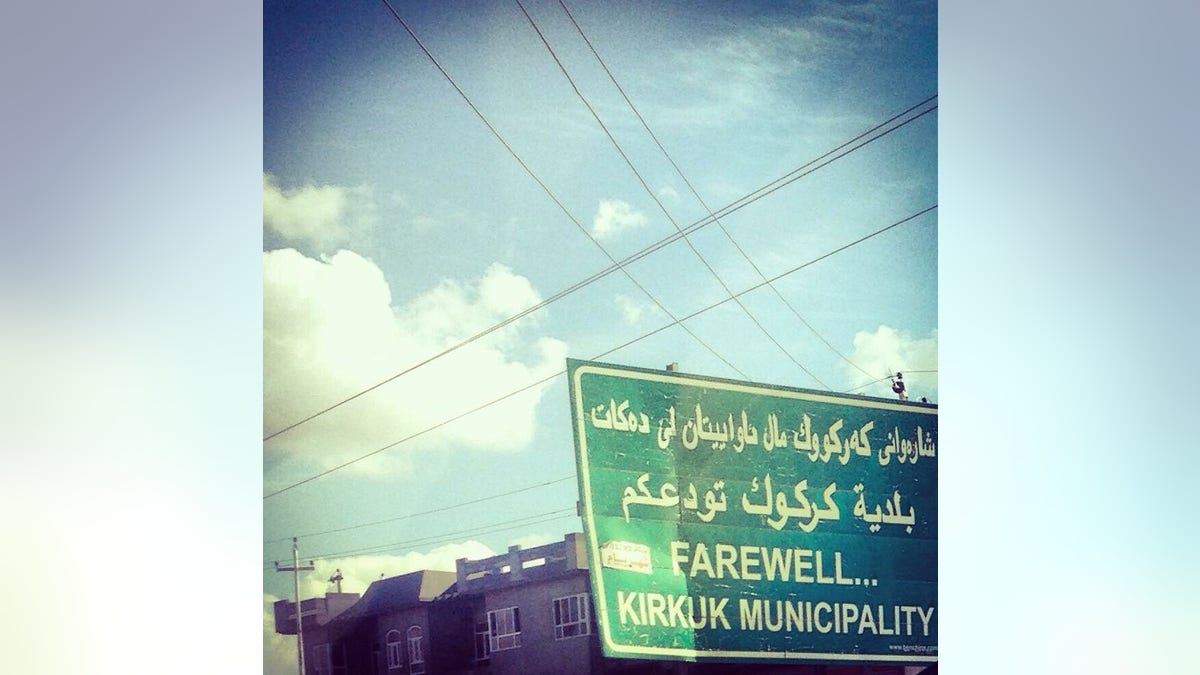
Kirkuk remains a disputed area between the Kurdish Regional Government and the Baghdad Central Government (Fox News/Hollie McKay)
“Kurdistan will need at least 10 years of U.S. support to sustain its affairs,” projected Ammar Kadhim Alshiby al Amry, a ranking parliament member representing State of Law bloc – the bloc aligned with former Prime Minister Nouri al-Maliki. “Kurds in Turkey and Iran and Syria will find strength in this referendum to ask for a similar move in their countries.”
And even though the September referendum is expected to be met with a resounding yes in favor of independence, it does not instantly mean that a unilateral secession will take place. Rather, it is likely to function as a potent negotiating tool with Baghdad and other international powers on the issue.
ISIS, SQUEEZED OUT OF IRAQ AND SYRIA, NOW 'REGROUPING' IN LIBYA, ANALYSTS SAY
HOW ISIS USES HUMAN SHIELDS IN FIGHTING COALITION FORCES
But despite the U.S, Baghdad and much international opposition, the Kurds are standing strong and officials told Fox News that it will not be delayed.
“The referendum is going to be held because of Kurdish people’s intense heartiness for being independent. Kurds, including all ethnic and minority groups, believe that an independent Kurdistan is the end of all sorrows and persecution which has historically been done against the Kurds,” Sami Ergoshi, spokesman for the KRG Prime Minister told Fox News.
Kurish suffering under the reign of Saddam Hussein, who used chemical weapons against them in 1988, together with their instrumental role in fighting ISIS, has instilled a feeling among them that they have earned their independence - and U.S. support.
“When ISIS was knocking at their door on the border, the Kurds fought for their homeland. They have sacrificed a lot,” said Luke Coffey, director of the Douglas and Sarah Allison Center for Foreign Policy at the Heritage Foundation. “They have proven a dependable ally to the United States.”
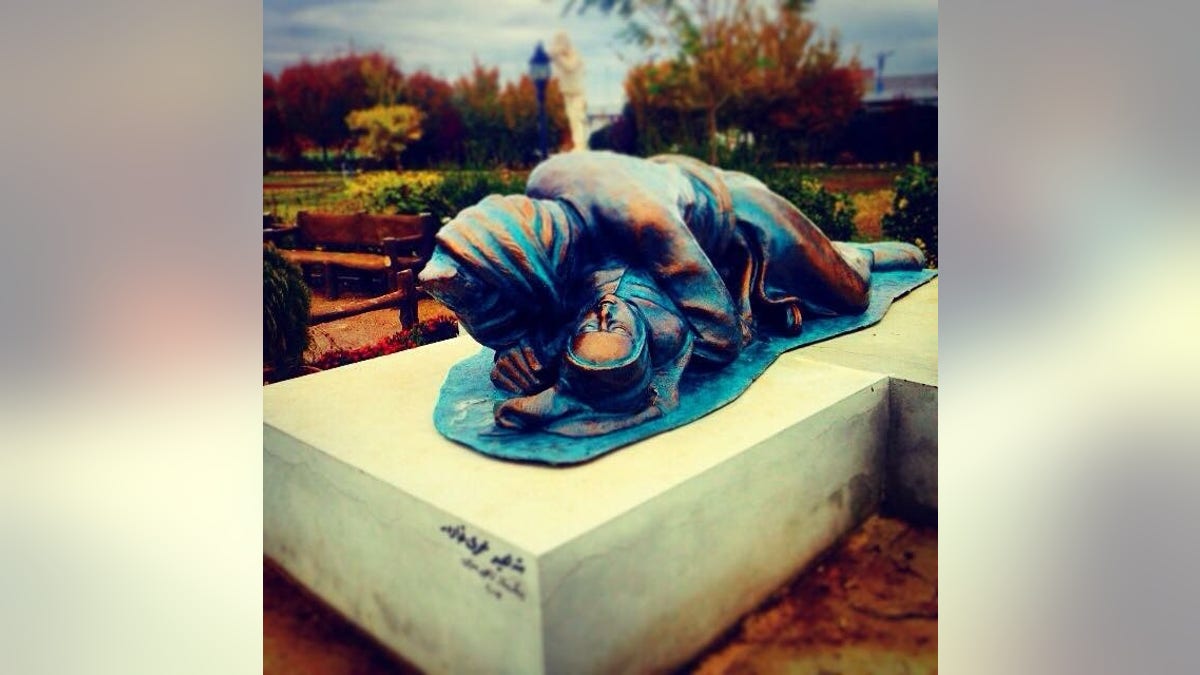
Saddam's use of chemical weapons on the Iran border town of Halabja signifies the intense history of persecution the Kurds have endured. (Fox News/Hollie McKay)
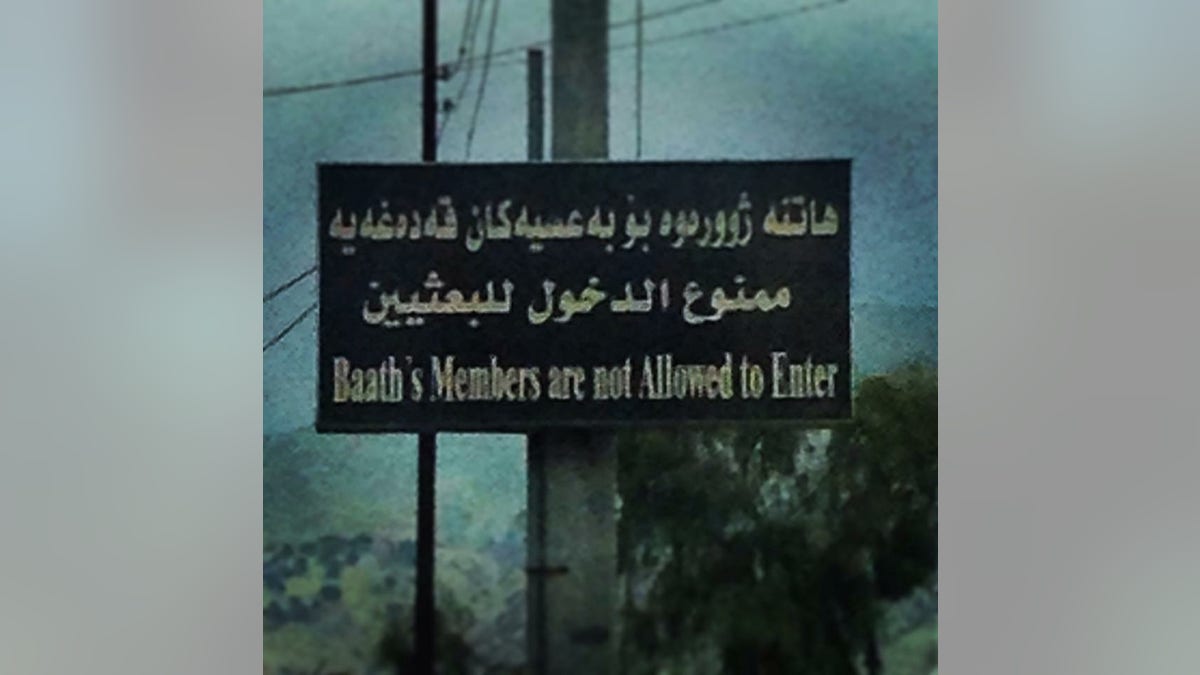
Outside a memorial for chemical weapons attack victims in the Kurdish town of Halabja (Fox News/Hollie McKay)
